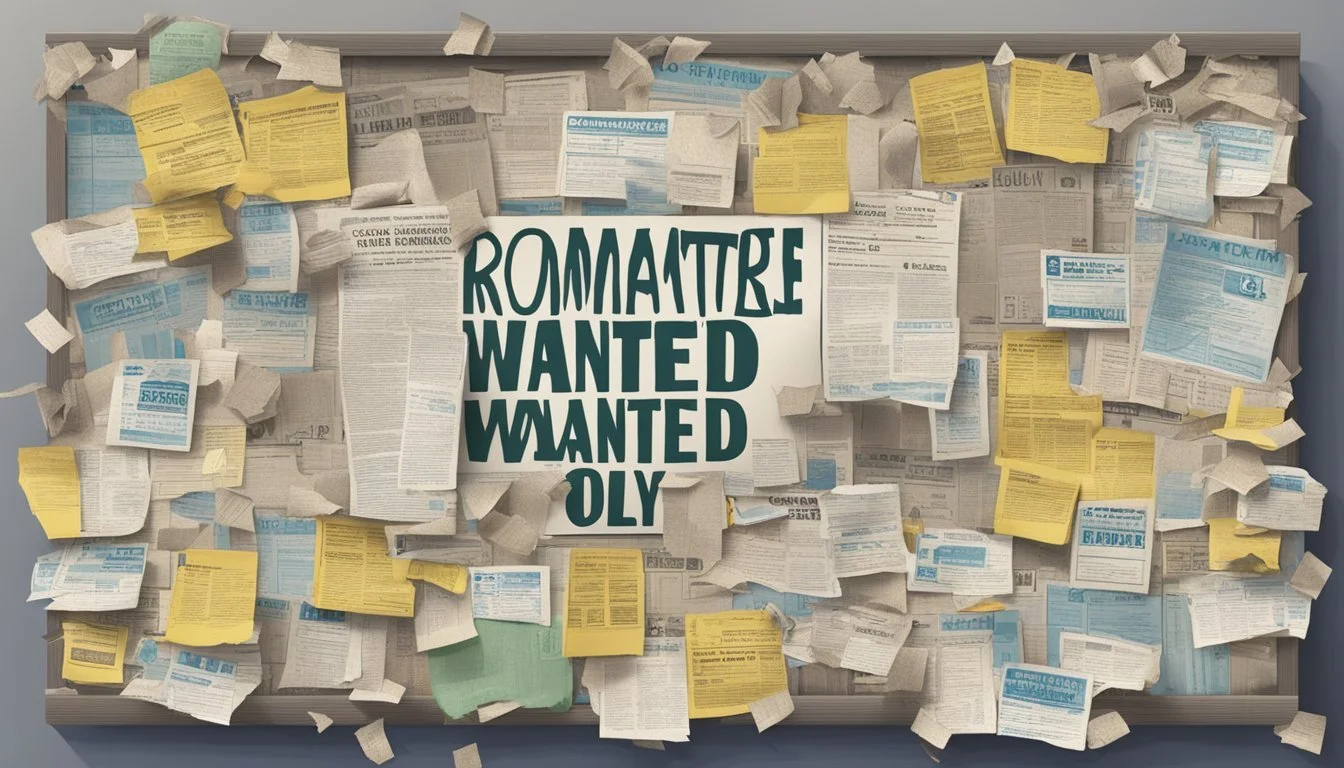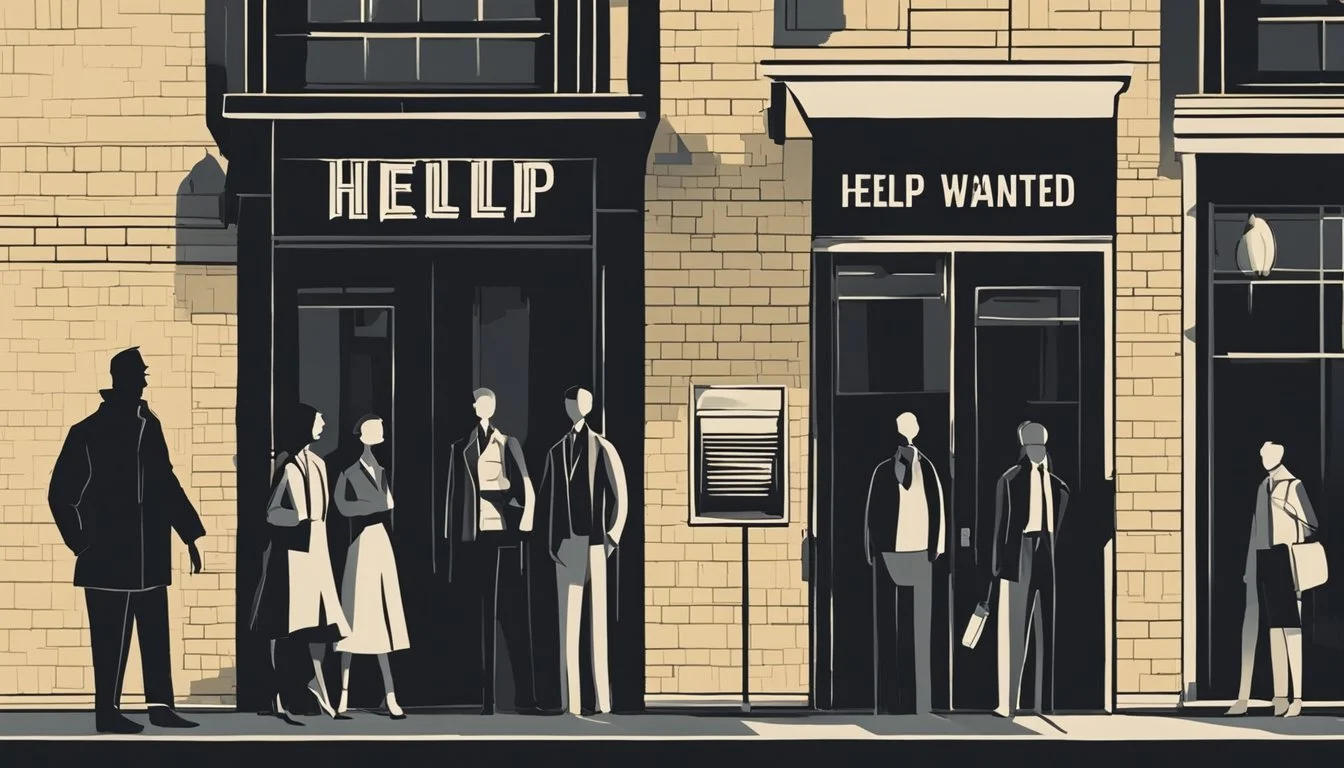Bobby Joe Long: 5 Red Flags in the Classified Ads of Florida's Infamous Rapist
Warning Signs Overlooked
Bobby Joe Long terrorized Florida in the 1980s, earning the moniker "Classified Ad Rapist" for his method of targeting victims through newspaper advertisements. His heinous crimes left a lasting impact on the Tampa Bay area and the true crime community.
Long's classified ad scheme revealed telltale signs that, in hindsight, could have alerted potential victims to danger. These red flags serve as important lessons for personal safety and awareness when interacting with strangers, especially in situations involving private transactions or meetings.
1) High-Speed Fast Car for Sale – 'Must Sell Fast'
Bobby Joe Long's classified ads often contained subtle red flags that hinted at his sinister motives. One common tactic was advertising high-performance vehicles at seemingly low prices with urgency to sell quickly.
These ads would typically feature phrases like "Must sell fast" or "Need gone ASAP" to create a sense of opportunity for potential buyers. Long used this strategy to lure victims, especially young women, to isolated locations under the guise of viewing the car.
The promise of a great deal on a desirable vehicle served as an effective hook. Long knew that fast cars held appeal, particularly to his target demographic. By emphasizing speed and a rushed sale, he aimed to cloud judgment and encourage hasty decisions.
Legitimate sellers rarely push for such rapid transactions on valuable items like cars. This urgency was a key warning sign that something was amiss with these too-good-to-be-true offers. Unfortunately, many victims overlooked this red flag in their excitement over a potential bargain.
2) Roommate Wanted – 'Female Applicants Only'
Bobby Joe Long's classified ads often included a specific request for female applicants only when seeking roommates. This gender-specific requirement was a glaring red flag that potential victims overlooked.
By targeting women exclusively, Long created opportunities to isolate and prey upon vulnerable individuals. He used the guise of shared living arrangements to gain access to potential victims.
Long's ads typically emphasized affordability and convenient locations to attract young women who might be struggling financially. He sometimes offered reduced rent in exchange for housekeeping duties, further exploiting economic vulnerabilities.
These ads allowed Long to meet women in private settings under seemingly legitimate circumstances. He could then assess their routines and vulnerabilities before choosing his targets.
Law enforcement later discovered that Long used information gathered during these "roommate interviews" to plan his attacks. This tactic demonstrated his calculated approach to selecting and stalking victims.
3) No Background Check Required – 'Clean History Irrelevant'
Bobby Joe Long's classified ads often included phrases suggesting no background checks were needed. This tactic was designed to attract vulnerable individuals who might have criminal records or other issues in their past.
By emphasizing that a "clean history" was irrelevant, Long aimed to cast a wider net for potential victims. He knew that people with troubled backgrounds might be more desperate for work and less likely to ask questions.
This red flag served a dual purpose. It not only appealed to those with checkered pasts but also signaled to all applicants that the job offer might not be entirely legitimate.
Long's strategy of explicitly stating no background checks were required helped him lure victims who might otherwise have been hesitant to respond to classified ads. This approach allowed him to target a broader range of individuals, increasing his chances of finding suitable victims for his crimes.
4) Cash Transactions Only – 'No Paper Trail'
Bobby Joe Long's classified ads often specified a preference for cash-only transactions. This requirement served as a major red flag, indicating his desire to avoid any traceable financial records.
By insisting on cash payments, Long aimed to maintain anonymity and prevent authorities from linking him to his victims. This tactic allowed him to operate without leaving a paper trail that could be used as evidence.
Cash transactions also made it easier for Long to target vulnerable individuals who might not have access to other forms of payment. This requirement potentially narrowed his victim pool to those less likely to be missed or reported missing quickly.
Law enforcement experts advise caution when encountering classified ads that explicitly demand cash-only payments. Such stipulations can signal an attempt to evade detection and should be viewed as a potential warning sign of criminal intent.
Long's insistence on cash transactions demonstrates the importance of maintaining awareness when responding to classified ads. Legitimate sellers typically offer multiple payment options to accommodate potential buyers.
5) Late Night Job Offers – 'Perfect for Night Owls'
Bobby Joe Long exploited the appeal of night shift work to lure potential victims. He placed classified ads offering lucrative late-night employment opportunities, targeting individuals who preferred evening or overnight hours.
These job listings often emphasized flexibility and high pay, making them attractive to those seeking non-traditional work schedules. Long's ads frequently used phrases like "perfect for night owls" or "ideal for late risers" to entice applicants.
By focusing on night-time positions, Long could arrange meetings in isolated locations under the cover of darkness. This tactic allowed him to operate with less risk of detection or interruption.
The promise of well-paying night jobs was particularly appealing in economically challenging times. Long took advantage of people's financial needs and desire for accommodating work hours to set his traps.
Legitimate night shift positions do exist across various industries. However, Long's false job offers were a sinister ploy to isolate and victimize unsuspecting individuals who responded to his carefully crafted advertisements.
Bobby Joe Long: Background and Profile
Bobby Joe Long was a notorious serial killer and rapist who terrorized Florida in the 1980s. His troubled past and psychological makeup contributed to his criminal behavior.
Early Life and Upbringing
Bobby Joe Long was born on October 14, 1953, in Kenova, West Virginia. He grew up in a dysfunctional family environment with his mother and sister. Long's childhood was marked by instability and abuse.
His mother frequently moved the family and engaged in inappropriate behavior in front of her children. Long suffered from several head injuries during his youth, which may have affected his cognitive development.
As a teenager, Long exhibited antisocial behavior and struggled in school. He married his high school girlfriend at 19 but their relationship was tumultuous and short-lived.
Criminology and Psychological Analysis
Long's criminal career began with a series of rapes in the early 1980s. He earned the moniker "Classified Ad Rapist" due to his method of finding victims through newspaper advertisements.
Psychologists believe Long suffered from paraphilia and antisocial personality disorder. His crimes escalated from rape to murder in 1984, with at least eight confirmed victims in the Tampa Bay area.
Long displayed traits common to organized serial killers, including planning, victim selection, and efforts to avoid detection. His ability to appear normal in everyday life while committing heinous acts is characteristic of psychopathic behavior.
Experts suggest Long's traumatic childhood, head injuries, and possible genetic factors contributed to his violent tendencies and lack of empathy.
Modus Operandi in the Classified Ads
Bobby Joe Long utilized classified ads as a key tool in his criminal activities. His methodical approach involved careful target selection and deceptive communication tactics to lure victims.
Target Selection
Long scanned newspaper classified ads for furniture and appliances being sold by women. He focused on listings that indicated the seller lived alone or might be vulnerable. Long prioritized ads from areas he knew well, allowing for quick escapes.
He avoided contacting sellers with male-sounding names or those mentioning a husband or boyfriend. Long sometimes called multiple times to determine if a woman was consistently home alone.
Communication Tactics
When responding to ads, Long used a friendly, professional tone to build trust. He often claimed to be a businessman looking for good deals on furniture for his office.
Long asked detailed questions about the items and seller's schedule to plan his visit. He sometimes requested evening appointments, citing work conflicts.
To appear legitimate, Long occasionally brought a female accomplice on initial visits. This tactic helped put victims at ease before he returned alone.
Long used fake names and disposable phones to avoid leaving a trail. He carefully crafted his persona as a normal buyer to disarm potential victims.
Investigation and Capture
Law enforcement faced significant challenges in tracking down Bobby Joe Long. His use of classified ads to find victims played a crucial role in both his crimes and eventual capture.
Law Enforcement Strategies
Investigators initially struggled to connect the string of murders in the Tampa Bay area. They formed a task force in 1984 to analyze patterns and gather evidence. Detectives conducted extensive interviews with surviving victims, hoping to build a profile of the killer.
Forensic evidence proved vital. DNA analysis, still a new technology at the time, linked Long to multiple crime scenes. Police also utilized fiber evidence found on victims' bodies to narrow their search.
Surveillance became a key tactic. Officers monitored areas where bodies had been dumped, watching for suspicious activity. They also increased patrols in neighborhoods where Long was known to operate.
Role of Classified Ads in Investigation
Long's method of using classified ads to find victims ultimately contributed to his downfall. Investigators pored over newspaper archives, identifying patterns in the types of ads he responded to.
They cross-referenced ad responses with reported assaults and disappearances. This analysis helped police build a timeline of Long's activities and potential hunting grounds.
Detectives placed decoy ads to lure the killer. They monitored responses, looking for similarities to Long's known communication style. This strategy helped narrow the suspect pool and ultimately led to Long's arrest in November 1984.






